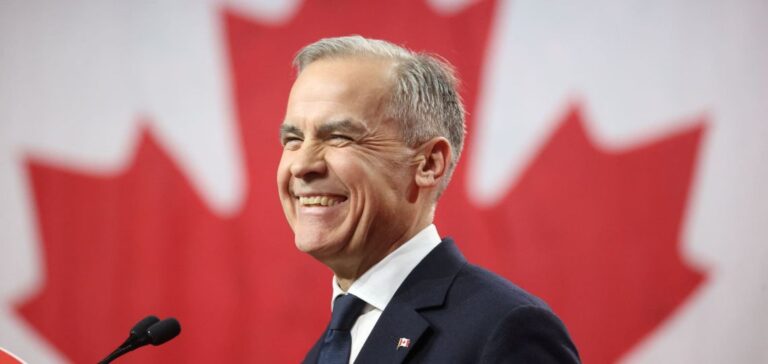The Canadian energy sector is entering a new era following the election of Mark Carney as head of the federal government. The former Governor of the Bank of Canada and former Special Envoy of the United Nations for Climate Finance brings an economic approach distinct from that of his predecessor, Justin Trudeau. From his initial statements, Carney clearly indicated his intention to redefine Canada’s energy policy. These decisions will have direct implications for the entire Canadian market, affecting both consumers and major industrial players.
Eliminating the consumer carbon tax
One of the most sensitive points raised by Mark Carney is the removal of the carbon tax currently imposed on consumers and small businesses. Initially introduced under the Trudeau government, this tax had sparked strong reactions, particularly due to its direct impact on fuel and household heating costs. Carney believes this measure has become divisive and ineffective at the individual level. He therefore proposes its immediate withdrawal to alleviate fiscal pressures on Canadian households.
In place of this tax, Mark Carney intends to implement a system of direct financial incentives to encourage citizens to invest in energy-efficient equipment, such as electric vehicles or advanced heating systems. This strategic shift aims to promote individual energy efficiency without imposing direct financial constraints on consumers.
Reviving Canadian nuclear energy
Alongside the removal of the consumer carbon tax, Mark Carney has clearly articulated an ambition to revive Canada’s nuclear energy sector. Historically strong in this field, Canada has nevertheless seen its nuclear investments slow down over recent decades. With the new Prime Minister’s arrival, nuclear energy returns to prominence, notably through the development of Small Modular Reactors (SMRs), considered promising for addressing energy needs in isolated regions or replacing older, high-emission power plants.
This energy reorientation aims to stabilize national electricity production while creating significant economic opportunities, especially in provinces historically active in nuclear power, such as Ontario and New Brunswick. Mark Carney considers this technology crucial to ensuring energy independence and supporting a realistic transition toward a diversified and reliable electrical grid.
Favorable stance on cross-border gas pipelines
Regarding energy relations with the United States, the new Prime Minister has not closed the door on developing cross-border gas pipelines, such as the project originally proposed by GNL Québec. Carney sees these infrastructures as strategically important for securing energy exchanges with the U.S. while strengthening economic ties between the two nations. He views these projects as essential to maintaining Canada’s economic competitiveness amid growing trade tensions with the United States.
However, Mark Carney emphasizes the importance of prior negotiations with the U.S. administration to ensure projects are economically viable and respectful of environmental and community requirements. No specific timetable has yet been revealed, but economic stakeholders are closely awaiting future federal announcements.
No immediate tax on oil exports
Amid persistent trade tensions with the United States, the idea of imposing an export tax on Canadian oil was recently raised by former Prime Minister Jean Chrétien. Mark Carney, however, has not indicated any intention to implement such a tax. For now, he favors diplomatic negotiations to resolve existing trade disputes without further escalating the economic situation between the two historical partners.
Carney thus remains cautious on this sensitive issue, favoring a measured diplomatic and commercial approach while strongly reaffirming the economic importance of the oil sector to Canada.
An energy policy focused on economy and diplomacy
The energy directions outlined by the new Prime Minister represent a significant shift, clearly rooted in an economic and pragmatic logic. The withdrawal of the carbon tax for consumers, coupled with the revival of nuclear energy and a favorable stance toward developing gas infrastructure, already gives a clear indication of the future positioning of the Canadian government in energy matters.
The coming months will be crucial to observing how these choices concretely materialize within the national economy, and how Canada navigates between its environmental objectives, economic imperatives, and diplomatic relations with the United States.






















